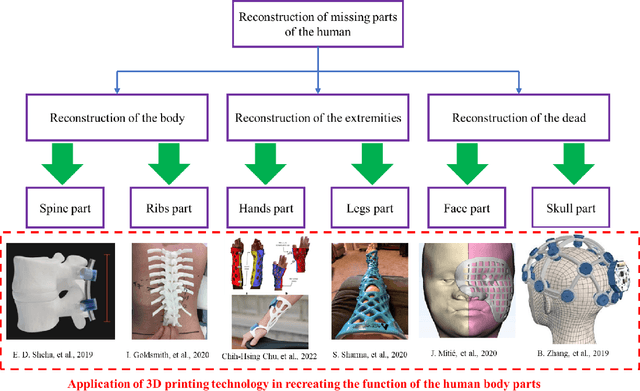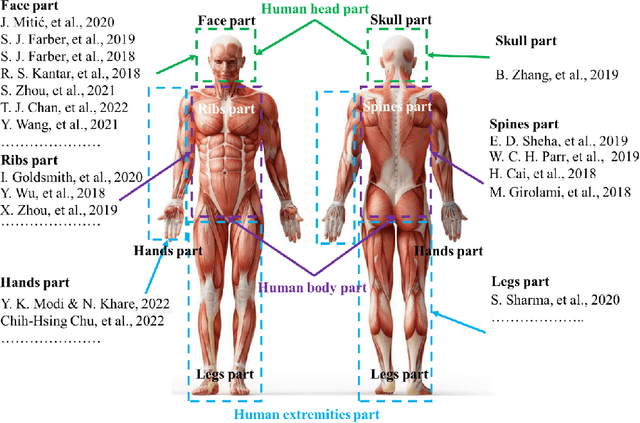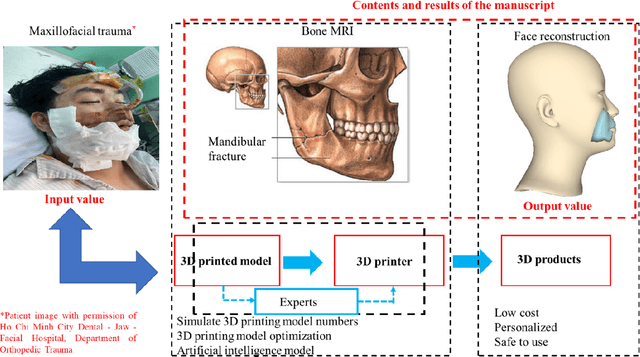Application of Self-Supervised Learning to MICA Model for Reconstructing Imperfect 3D Facial Structures
Paper and Code
Apr 08, 2023



In this study, we emphasize the integration of a pre-trained MICA model with an imperfect face dataset, employing a self-supervised learning approach. We present an innovative method for regenerating flawed facial structures, yielding 3D printable outputs that effectively support physicians in their patient treatment process. Our results highlight the model's capacity for concealing scars and achieving comprehensive facial reconstructions without discernible scarring. By capitalizing on pre-trained models and necessitating only a few hours of supplementary training, our methodology adeptly devises an optimal model for reconstructing damaged and imperfect facial features. Harnessing contemporary 3D printing technology, we institute a standardized protocol for fabricating realistic, camouflaging mask models for patients in a laboratory environment.
 Add to Chrome
Add to Chrome Add to Firefox
Add to Firefox Add to Edge
Add to Edge